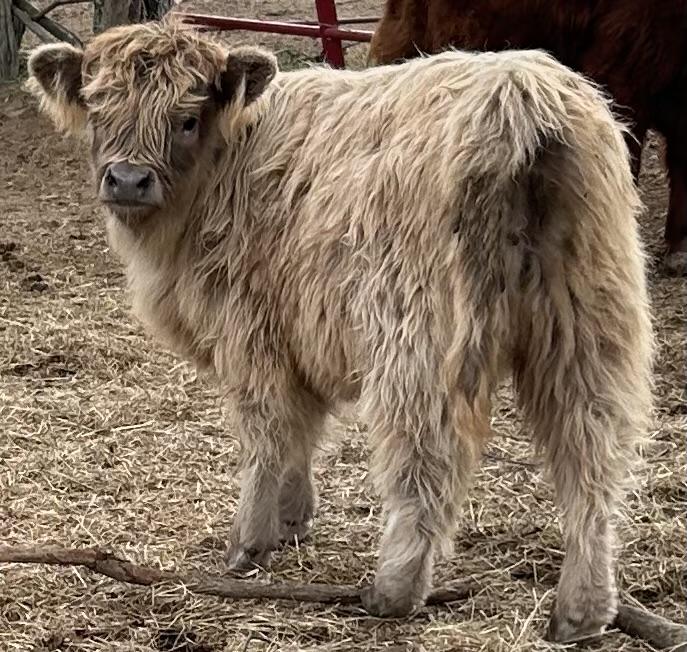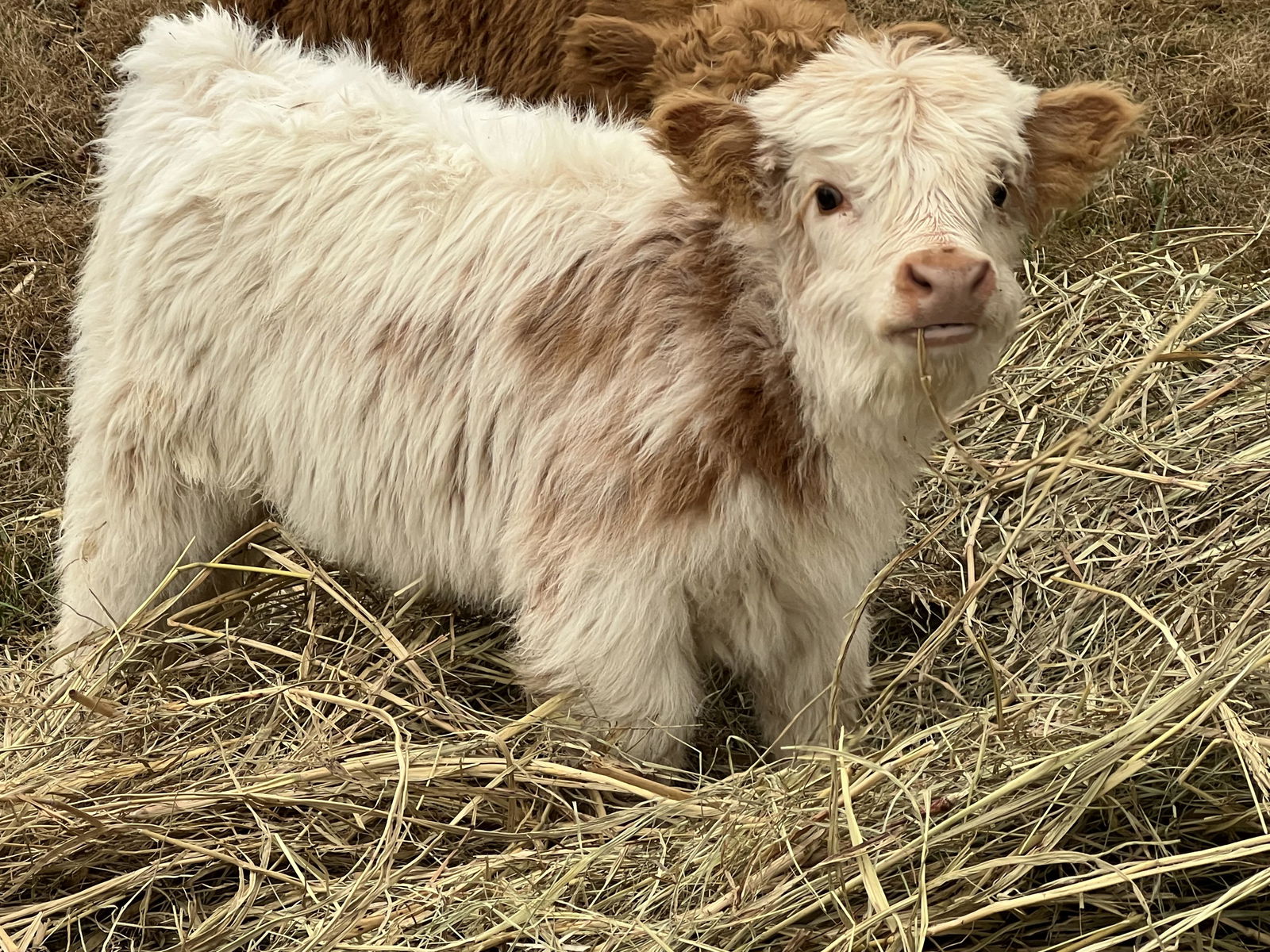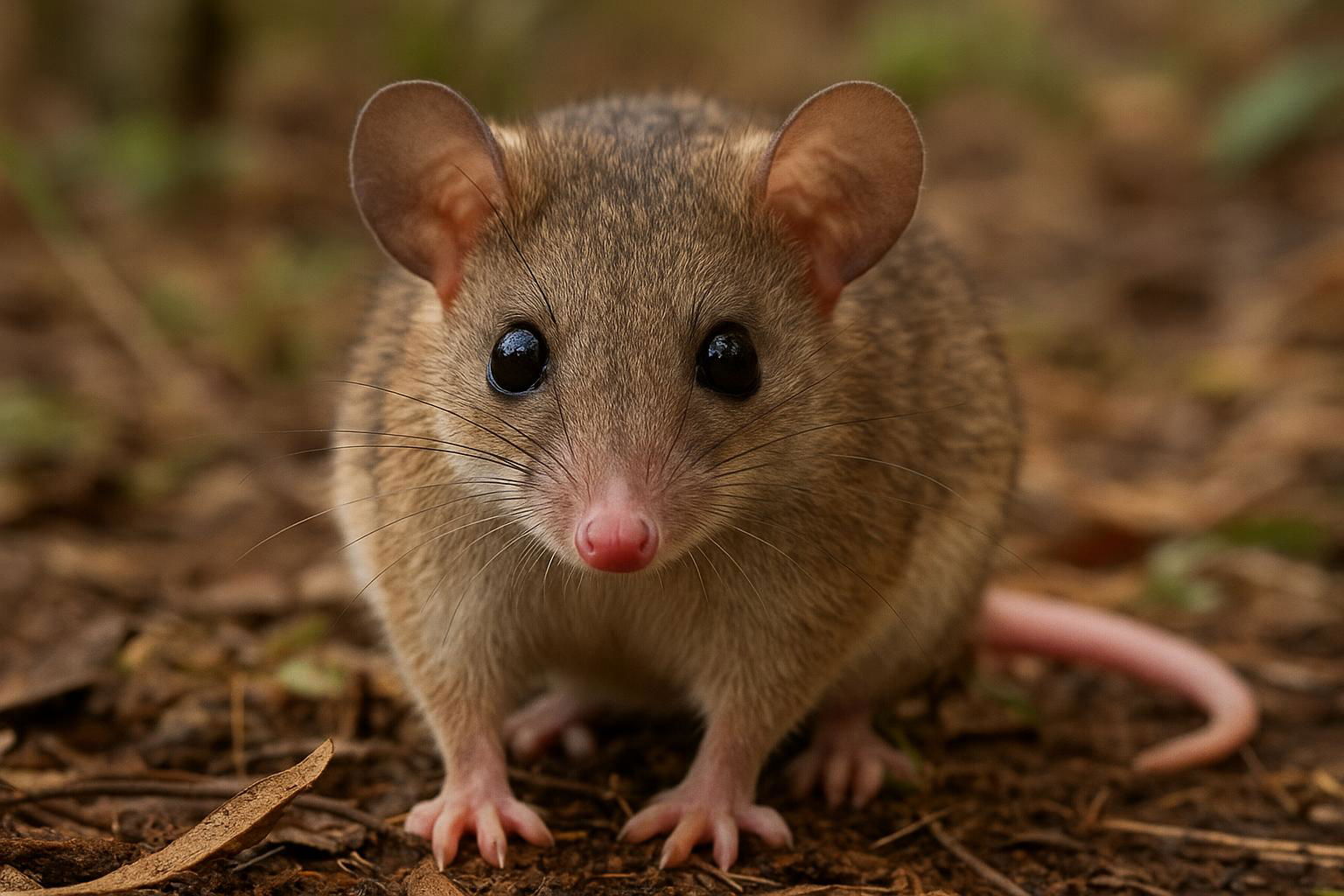
Short-Tailed Opossum
Monodelphis domestica
The Short-Tailed Opossum, scientifically known as Monodelphis domestica, is a small marsupial native to the forests and grasslands of South America, particularly in Brazil, Bolivia, and Paraguay. This species is distinct for its compact size, usually weighing between 50 to 150 grams and measuring around 10 to 15 centimeters in body length, with a tail that is notably shorter than its body. The tail is non-prehensile, unlike many of its opossum relatives, and serves primarily for balancing purposes.
Short-Tailed Opossums have a sleek coat, often in shades of gray or brown with lighter underbellies, and are characterized by their pointed snouts and small, rounded ears. Known for their solitary and nocturnal nature, they are insightful foraging creatures, feeding on a diet of insects, small vertebrates, and fruit. They play a crucial ecological role in controlling insect populations and dispersing seeds.
In recent years, the Short-Tailed Opossum has gained attention in scientific and research communities as a model organism for studies in genetics, aging, and immunology due to their adaptability and relatively short lifespan. Additionally, they are occasionally kept as exotic pets, appreciated for their curious and manageable temperament. While not currently listed as endangered, habitat destruction remains a concern for their populations in the wild.

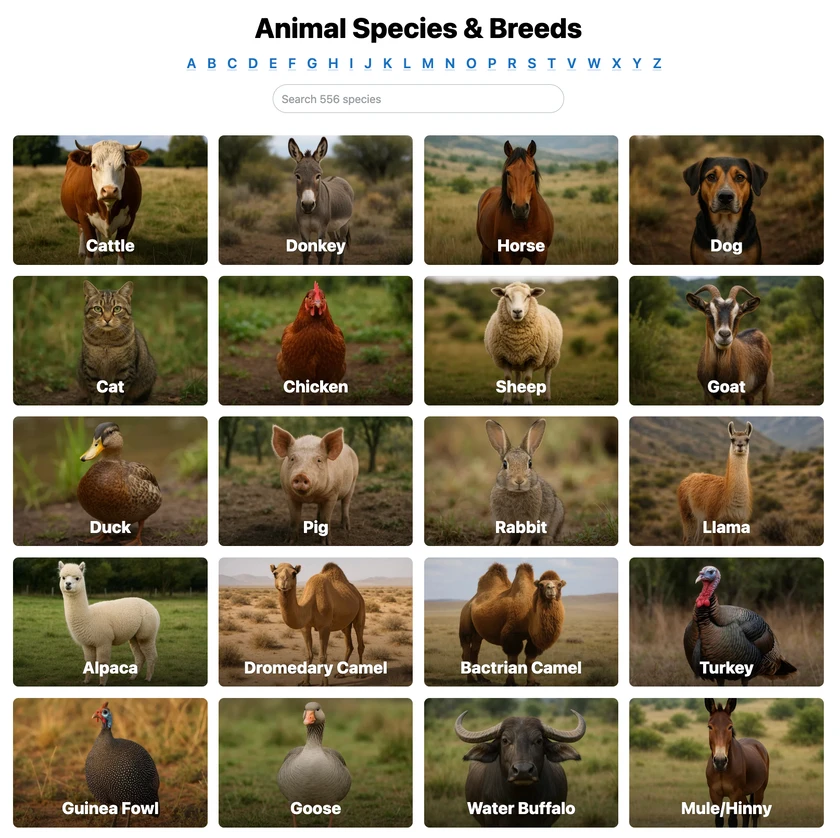 All Species & Breeds
All Species & Breeds
 Highland Cattle
Highland Cattle
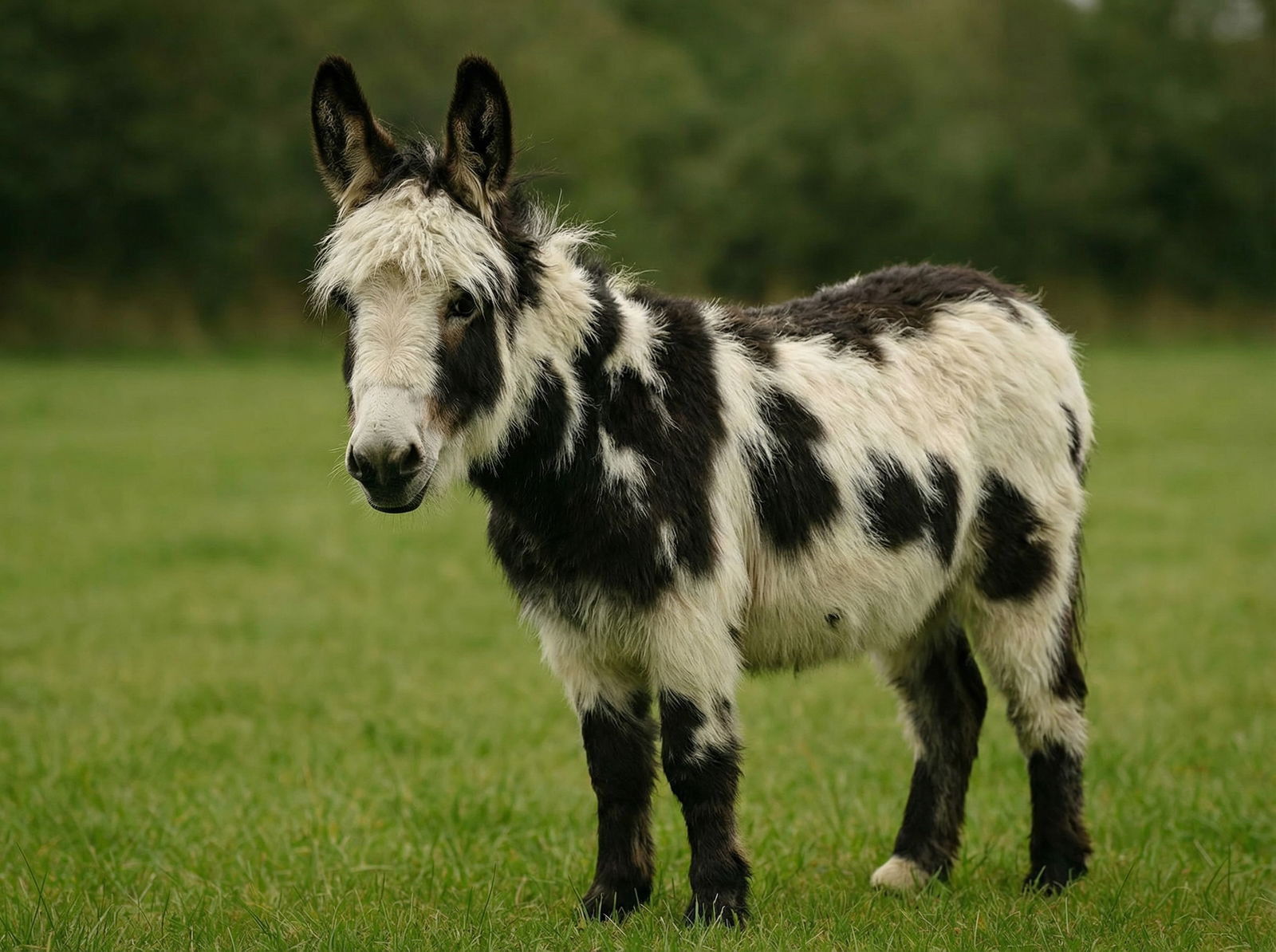 Miniature Donkeys
Miniature Donkeys
 All Species Directory
All Species Directory
 Highland Cattle in Virginia
Highland Cattle in Virginia
 Miniature Donkeys in Texas
Miniature Donkeys in Texas

